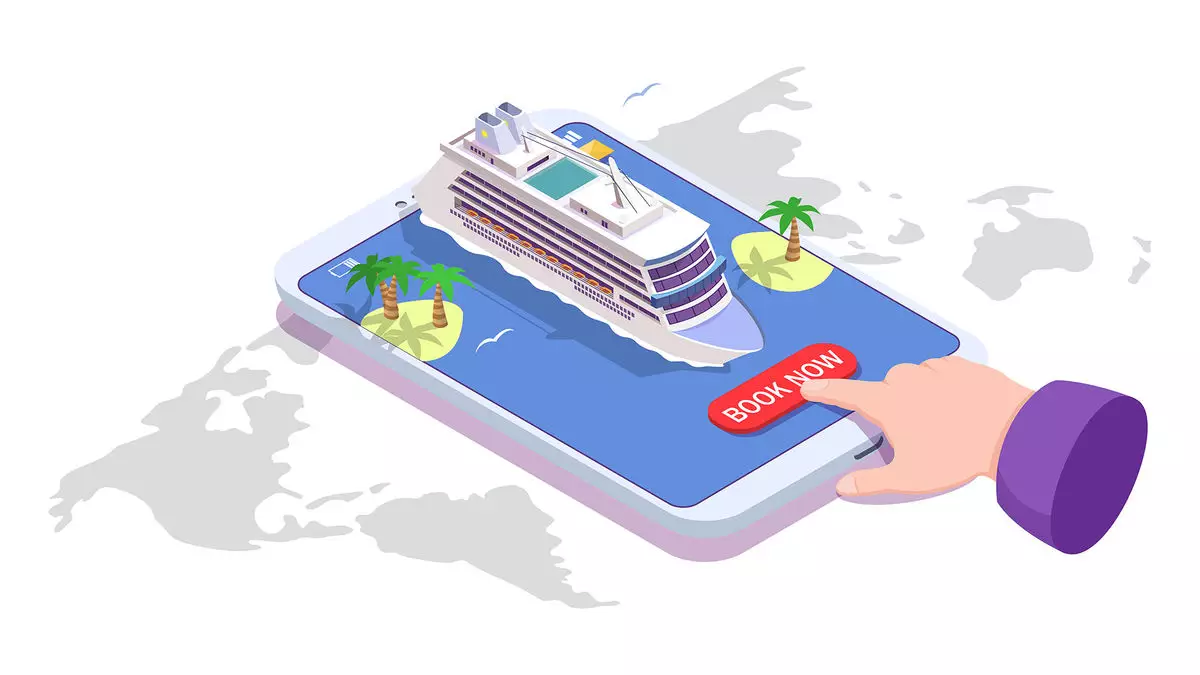The cruise industry is experiencing a remarkable revenue surge, outpacing expectations and redefining how companies engage with their customers. Amidst this robust growth, a fascinating dynamic is unfolding: the rates at which cruise companies are paying commissions to travel advisors or agents are lagging behind revenue increases. Reports from Cleveland Research Co. highlight this trend, particularly within major players such as Royal Caribbean Group and Viking. It becomes clear that these companies must navigate a shifting sea of consumer behavior, where direct sales are drastically reshaping business models.
As highlighted in the report, Royal Caribbean’s revenue rocketed by 51% since 2019, yet its commission expenses only climbed 36%. This stark contrast indicates a strategic pivot towards direct-to-consumer sales that seems to be paying off for the cruise line. By cutting out intermediaries to sell trips directly to consumers, Royal Caribbean has not only enhanced its profitability but also enabled innovative offerings like “Perfect Day at CocoCay,” a private island experience that draws more customers straight to its brand. This strategy underscores the profound transformation occurring within the cruise industry, one that profoundly affects stakeholders, from the cruise lines themselves to travel agents.
The Pivot Toward Direct Business
According to Vince Ciepiel, the report’s author, the increasing reliance on direct business is reshaping revenue channels and reducing dependency on travel agencies. This trend reflects broader shifts seen across various sectors, as businesses continuously seek ways to engage consumers more directly and effectively. Royal Caribbean’s CEO, Jason Liberty, enthusiastically noted the exceptional performance of direct consumer channels, illustrating that these strategic changes are not mere anomalies but pivotal components of long-term business strategy.
Meanwhile, Viking, with its impressive 66% revenue growth compared to a 58% increase in commission payouts, is on a similar trajectory. The commendable balance achieved here reflects a robust direct-selling strategy that, according to the company’s founder, places significant importance on maintaining relationships with travel advisors. Viking’s commitment to offering one of the highest booking commissions in the industry is a calculated effort to retain the loyalty of agents, illustrating that even as direct sales win ground, traditional channels still hold considerable value.
Differing Strategies and Market Dynamics
Norwegian Cruise Line Holdings (NCLH) presents a contrasting picture with commission growth of a staggering 73%, eclipsing its revenue growth of 47%. This discrepancy may raise eyebrows; nonetheless, it underscores NCLH’s strategy of bundling air travel with its cruise packages—a move that complicates the commission structure, as flights often come with higher associated commissions. This highlights the intricacy of the cruise sales landscape, where companies must not only contend with rising consumer expectations but also adapt to complex pricing strategies if they wish to remain competitive.
Carnival Corp., for its part, illustrates a more balanced approach, where commission growth aligns closely with its revenue, reflecting a 20% revenue increase against a 19% commission rise. Analysts attribute this stability to the company’s broader European exposure, where consumers are often more reliant on travel advisors due to the complexities of international booking. This dichotomy between the companies reflects varying customer bases and market demographics, guiding each company to different operational strategies.
The Role of Consumer Behavior in Shaping Sales Strategies
A pivotal aspect of these developments lies in evolving consumer behavior. The increasing popularity of shorter cruise vacations—typically lasting three to four days—may be reshaping how potential vacationers approach bookings. These more simplified itineraries often deter travelers from engaging travel agents, as they feel capable of independently organizing their short getaways. This shift highlights an urgent need for cruise lines to innovate and simplify their direct sales processes, rendering them user-friendly and attractive.
As Patrick Scholes from Truist Securities aptly pointed out, the cruise industry must adapt to meet the burgeoning desire for self-service among consumers. By making online booking seamless and intuitive, cruise lines can capitalize on this consumer trend instead of being hindered by traditional sales channels.
Key Takeaways for Travel Advisors in an Evolving Landscape
For travel advisors navigating this evolving terrain, the data is both enlightening and cautionary. While direct sales are undeniably rising, the traditional role of travel agents is far from obsolete. With some companies still maintaining favorable commission structures, there remain significant opportunities for travel advisors who can adapt to the changing landscape. Establishing a forte in strategizing direct bookings or providing exceptional customer experiences could set agents apart from their competitors in this increasingly digitalized marketplace.
The cruise industry is just beginning to uncover the full impact of its revenue transformations. As businesses pivot and adapt their strategies to harness consumer preferences, understanding the interplay of direct sales and traditional commission structures will become a fundamental aspect of the cruise sector’s future trajectory.


Leave a Reply